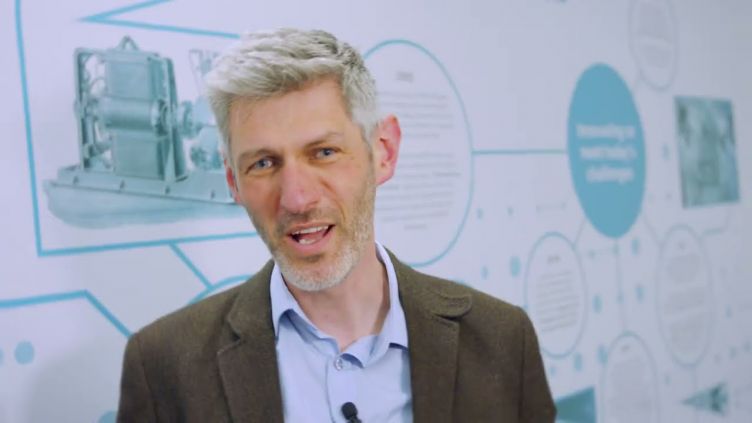Taking innovation to the market place
Pioneering win-win business models and brand new services. The Siemens Water (SIWA) Blockage Predictor application is the first product of its kind.

The University of Sheffield has worked with Siemens and Yorkshire Water to develop, test and commercialise a completely novel predictive digital tool that reduces pollution incidents, helps water companies meet their statutory obligations and adds a new dimension to Siemens’ MindSphere Internet of Things (IoT) platform.
The Siemens Water (SIWA) Blockage Predictor application is the first product of its kind. It uses fuzzy logic, Internet of Things and big data analysis to accurately pinpoint faults in the sewage system at an early stage, allowing water companies to act before a blockage causes an unnecessary pollution incident in our rivers and waterways.
The data science and sensor technology underpinning the Predictor was developed by researchers at the Sheffield Water Centre in the early 2000s using data from thousands of Combined Sewage Outflows (CSOs) across the Yorkshire Water sewage system. CSOs are the mechanisms that prevent sewage flooding our homes during a surge by the controlled release of sewage into rivers and waterways. By combining the sensor data with meteorological readings, long-range forecasting and contextual data on the location and surroundings of each CSO, the team created an algorithm that pinpoints blockages and faults in the pipes as they develop.
By building a personalized fingerprint for the wastewater assets that reflects how the local network responds to rainfall and overlaying that on patterns of daily behaviour, we have been able to establish what each asset’s "normal" response is.
Joby Boxhall
Joby Boxall, Professor of water infrastructure engineering, Department of Civil & Structural Engineering.
In trials across the Yorkshire Water network, the system predicted real faults with 88% accuracy (more than three times more effective than the statistical system previously used) and cut ‘false alarms’ by half. However, it wasn’t until a conversation between Joby Boxall (Professor of Water Infrastructure Engineering at Sheffield) and Adam Cartwright (Head of IoT application delivery at Siemens) in the flagship Digital Innovation Zone some 15 years later that the commercial potential of the algorithm was fully realised.
Siemens had the capability to make the system scalable, usable and secure. The involvement of such a big name in engineering gave Yorkshire Water confidence that the technology could be scaled up, and they agreed to advise on useability and commercial suitability. The three partners embarked together on a voyage of exploration that culminated in a ground-breaking product and an innovative business model. The resulting tool fought off intense competition within Siemens Global to win development funding and is now a centrepiece of the SIWA MindSphere Water Suite aimed at industrial clients.
We want to commercialise great ideas that haven’t gone anywhere in a win-win relationship. We want to work collaboratively with cutting edge researchers to bring the best tech to market.”
Adam Cartwirght
Head of IoT application delivery at Siemens.
Yorkshire Water were rewarded with early access to a unique performance-enhancing digital tool. At a time when a rise in unnecessary pollution incidents is causing a public outcry, the tool is key to helping water companies comply with increasingly stringent regulations and achieve their goal of zero pollution incidents by 2050. All this while directing maintenance and repair resources straight to where they are needed, avoiding costly but unnecessary callouts from false alarms. A truly win-win experience for all involved.
Adam Cartwright explains why university partnerships are important.
To learn more about our partnership with Siemens contact our Industry Account Manager:
John Dale
M:+44(0)7725 603867
E: j.dale@sheffield.ac.uk

